CarEdge saved me over 4,500 dollars on a brand new Honda Pilot. I can't say thank you enough.
Price intelligence
Find a wide range of vehicle listings with market insights on new and used listings near you.


Help us personalize your CarEdge experience — it only takes a second.
Your answers help us personalize your CarEdge journey — we’ll follow up with tips and next steps that match your buying timeline.

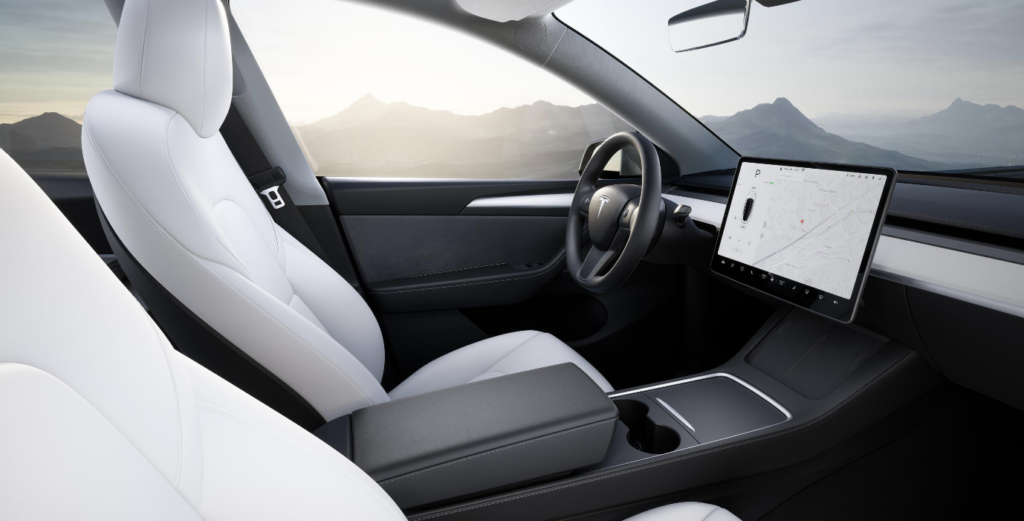
One third of American drivers are seriously considering going electric as generous tax credits, fuel savings and reduced emissions lure the masses towards EVs. My own household made the switch in early 2022, and we’re never going back to ICE. In hopes of adding clarity to the current EV market, we’ve created this resource to share what we think are the BEST electric cars, trucks and SUVs in 2023. We’ve also shared what we think are the worst.
These models are stand-outs for their value. Range, charging speed and available features are given priority over performance in our analysis.
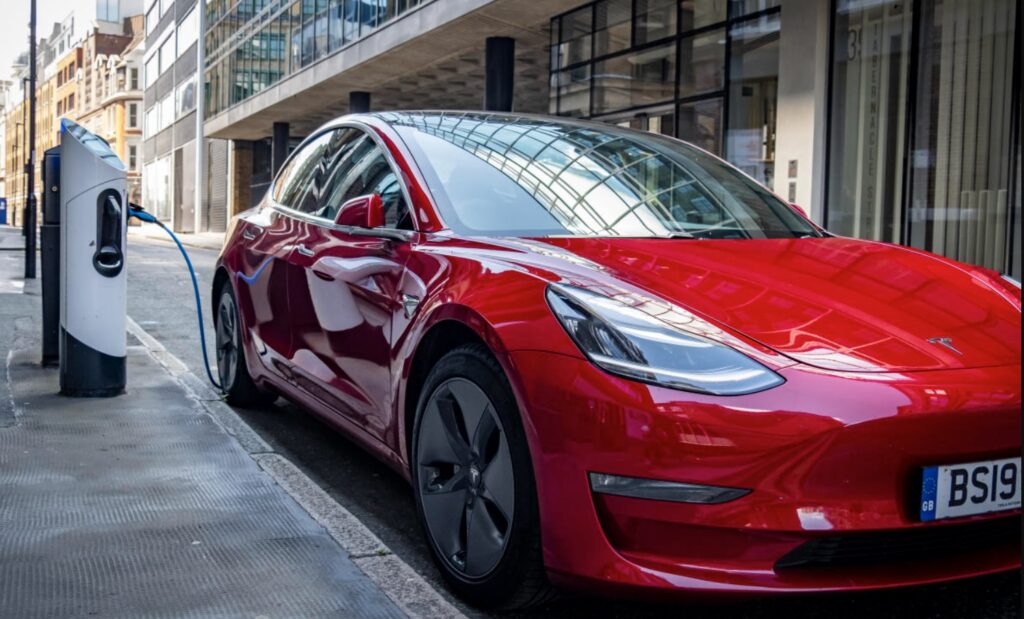
Price: $41,990
Range: 272 miles
Fast charging (adding 200 miles in 20-30 minutes)
Why it’s great: The Tesla Supercharger network makes cross country travel hassle-free. Tesla charges are very reliable, and with 1,500 locations in all 50 states, finding one is rarely an issue.
Plus, the price you see on Tesla’s online configurator is the price you pay (before taxes and required fees, of course). While legacy automakers continue to struggle with out-of-control dealer markups, Tesla and other direct-to-consumer EV makers have the upperhand on pricing.
See pre-owned Tesla inventory near you, or configure a new Tesla at Tesla.com
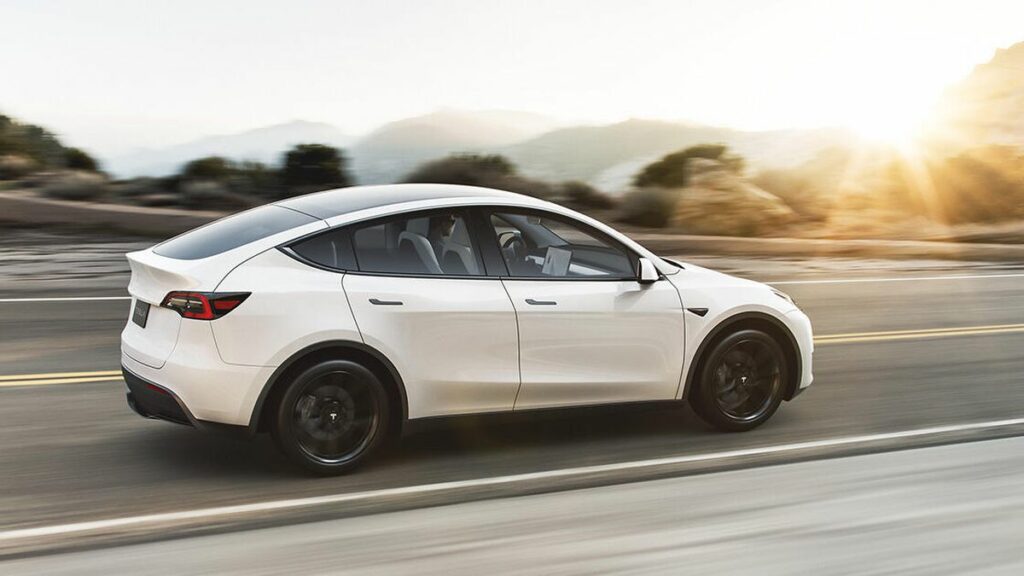
Price: $52,990+
Range: 330 miles
Fast charging (adding 200 miles in 20-30 minutes)
Why it’s great: The Model Y is the larger, more family-oriented version of the Model 3. Last year, the Model Y overtook the 3 as the best-selling EV in America. Although it is the most expensive model on this list, if you can afford it, the ease of public charging, great range, spacious interior and exhilarating performance all make this the sweet spot for many buyers. Plus, there are no dealer markups.
But wait, there’s more. Both the Model Y and Model 3 are available for delivery soon after placing an order. Tesla wait times are between one and three months as of late 2022. That’s about as good as it gets in today’s EV market.
Should you ever decide to sell, both of these Teslas have amazing resale value.
See pre-owned Tesla inventory near you, or configure a new Tesla at Tesla.com
Check out this resource: The Best Electric Vehicles Under $50,000
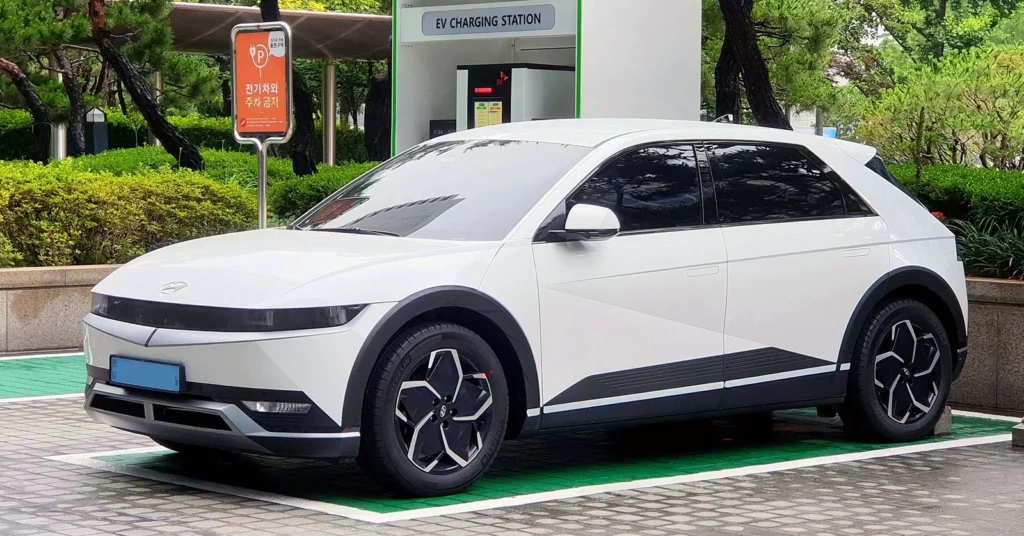
Price: $46,250 (dealer markups are common but negotiable)
Range: 303 miles
Fast charging: Add 200 miles of range in 20 minutes
Why it’s great: The 2023 IONIQ 5, Kia EV6, and Genesis GV60 are the first models powered by Hyundai Motor Group’s Electric Global Modular Platform. This is next-gen 800-Volt architecture at (relatively) affordable prices, and that’s awesome.
Plus, the IONIQ 5 is spacious, and looks really cool. Sadly, Hyundai has had a very difficult time scaling up production due to supply chain constraints, so expect to either wait for at least six months, or battle outrageous dealer markups to get your hands on a rare allocation.
I love my IONIQ 5. Here’s a review of my ownership experience so far.
See Hyundai IONIQ 5 inventory near you.
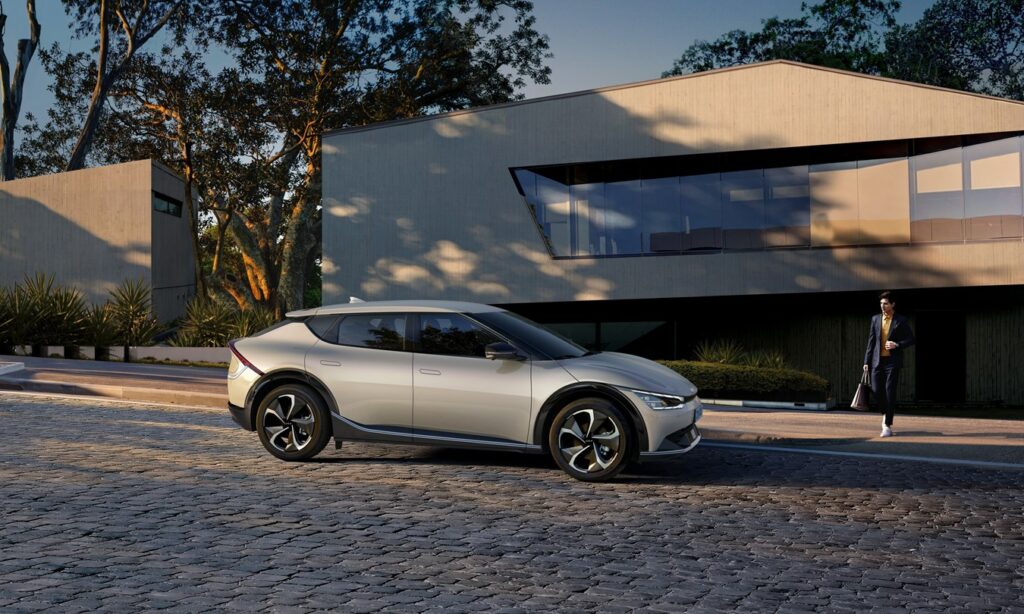
Price: $49,795 (dealer markups are common but negotiable)
Range: 310 miles
Fast charging: Add 200 miles of range in 20 minutes
Why it’s great: Kia’s version of the IONIQ 5 looks completely different, with very similar specs. That’s because both models share the e-GMP platform with great range and even better charging.
The 2023 EV6 has slightly more availability than the IONIQ 5 right now. For the 2023 model year, Kia decided to drop the “Light” base model, kicking the entry-level price all the way up to nearly $50,000.
As always, I recommend everyone take a test drive before dismissing EVs. They’re quiet, efficient and fun. The EV6 would be a great one to take for a spin.
See Kia EV6 inventory near you.
Here’s every electric truck’s pricing and range.
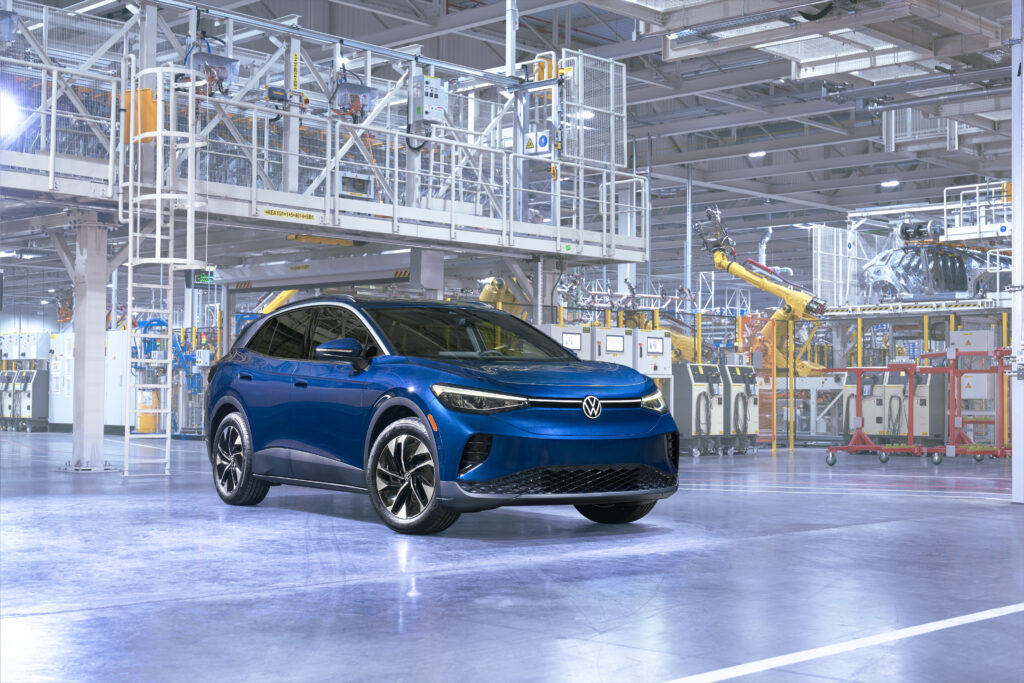
Price: $42,495
Range: 275 miles
Fast charging: Add 190 miles of range in 28 minutes
Why it’s great: The VW ID.4 is now made in America at Volswagen’s Chattanooga, Tennessee factory. That means it will qualify for the revised EV tax credit (up to $7,500), as long as your VIN confirms that it is an American-made ID.4. I was impressed during my test drive of the ID.4. It rides like a luxury crossover, and has plenty of acceleration when you need it. However, it’s definitely the least sporty of this bunch, but it’s also the least expensive.
Now made in America, there is also a new cheaper option starting at $37,495. However, with public charging infrastructure slow to build out, the expected 208 miles of range is not enough for us to confidently recommend it to anyone but those who expect to stick around urban areas 95% of the time. The ID.4 Pro, on the other hand, is exceptional value with the EV tax credit.
See Volkswagen ID.4 inventory near you.
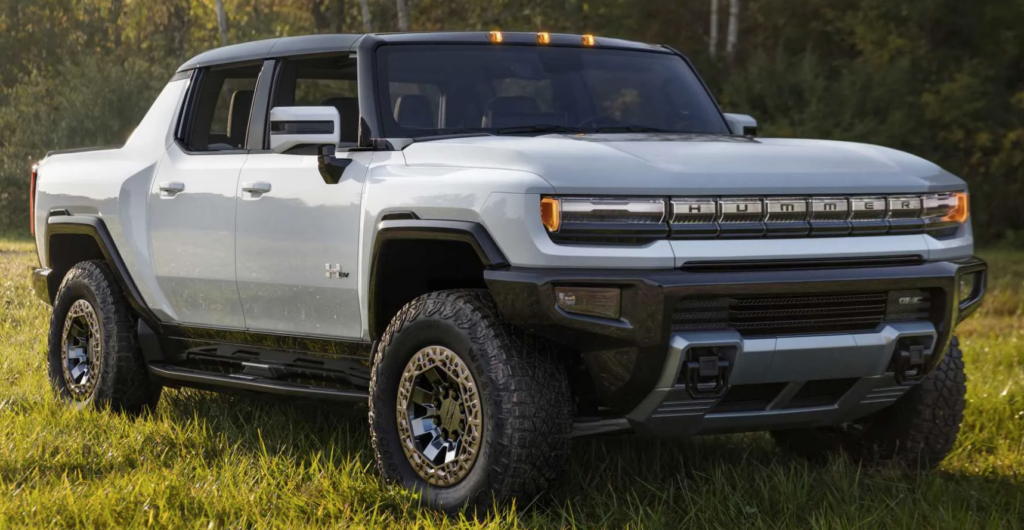
Price: $90,000-120,000 (before markups of up to $100,000)
Range: 329 miles
Why it’s horrible: Where do we start? The Hummer EV costs $100 to charge (because it has a MASSIVE 212 kilowatt-hour battery pack), weighs 9000 pounds (that’s 2x the weight of the typical F-150), and is horrible for the environment. If you’re looking to go green with your EV purchase, this isn’t it. It’s also very expensive, but that’s less surprising these days.
At auction, we’ve seen many Hummer EVs selling for over $200,000. No thanks.
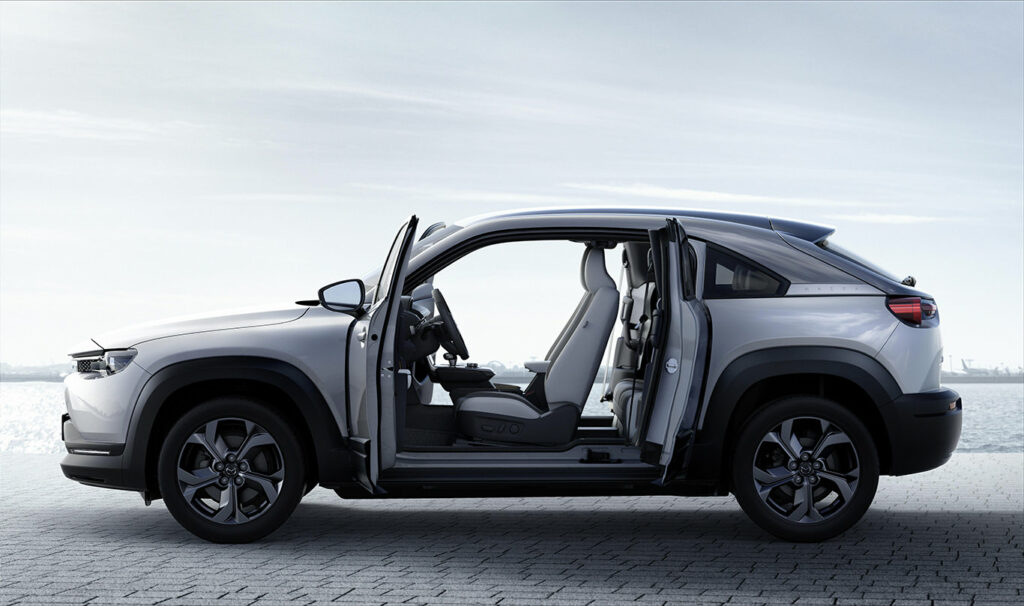
Price: $34,000
Range: 100 miles
Why it’s horrible: If you’re considering the Mazda MX-30, send me an email at [email protected]. I’d like to talk you out of it. I have nothing against Mazda as a brand (they make some awesome cars), but I am very against anyone buying an electric car with just 100 miles of range in 2022. Sure, maybe it’s just for around town. Have you thought about resale value? With barely 100 miles on a charge and slow charge times of around one hour, I’m afraid Mazda’s first EV won’t be worth its scrap metal value in a decade.
Other options to consider at this price point? The Nissan LEAF, base Volkswagen ID.4, Chevrolet Bolt, and soon-to-come Chevrolet Equinox EV are all far more capable for under $40,000.
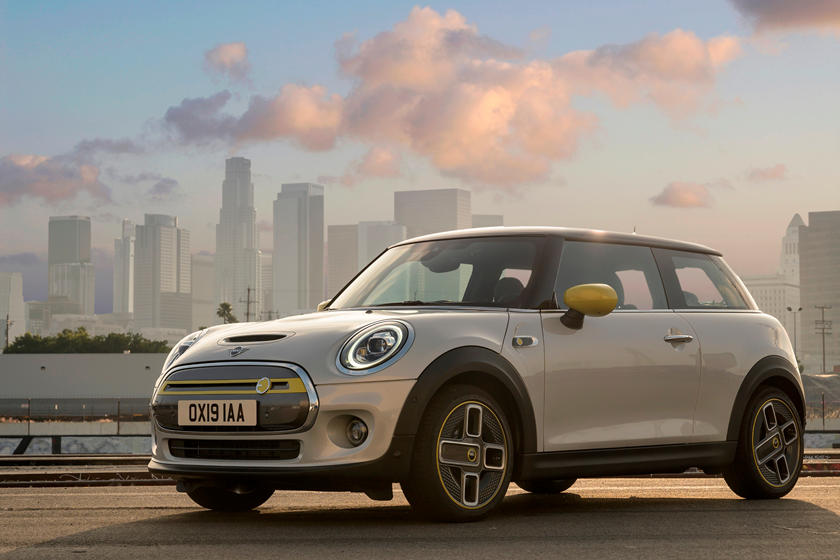
Price: $34,000
Range: 110 miles
Why it’s horrible: I sure hope CarEdge’s own Ray Shefska forgives me for bashing the electric MINI, but with 110 miles of range and slow charging, I don’t see a single reason why anyone should consider this EV. It’s one of the last ‘compliance cars’ in the EV market.
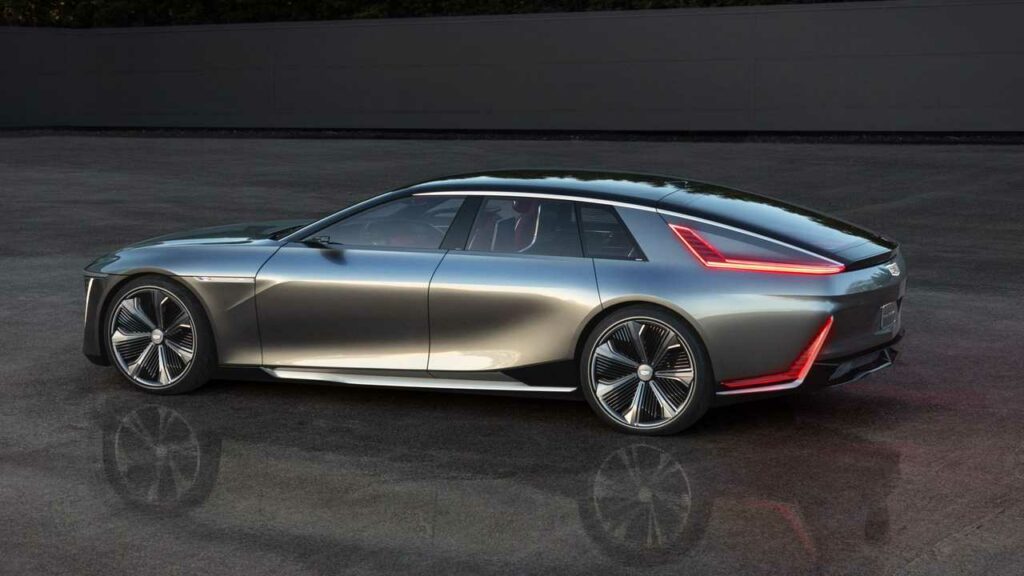
Price: $300,000+ (yes, count those zeroes)
Range: 300+ miles
Why it’s horrible: Would you pay Rolls Royce money for a Cadillacl? GM seems to think you would. I’m all for going all-out on EV design and innovation, but when Cadillacs cost more than houses, I can’t help but shutter. But hey, it will be hand-built.

Heading into 2023, larger families in the market for an electric SUV are left with few options. Unless you’re prepared to spend over $90,000 for a Tesla Model X or Rivian R1S, your best shot has been to stick to conventional hybrids or PHEVs. That’s all going to change with the arrival of the Kia EV9 and Hyundai IONIQ 7 in 2024. These two are set to become the first 3-row electric SUVs with affordable pricing. Here’s everything we know about the IONIQ 7 and Kia EV9’s release date, pricing and specs.
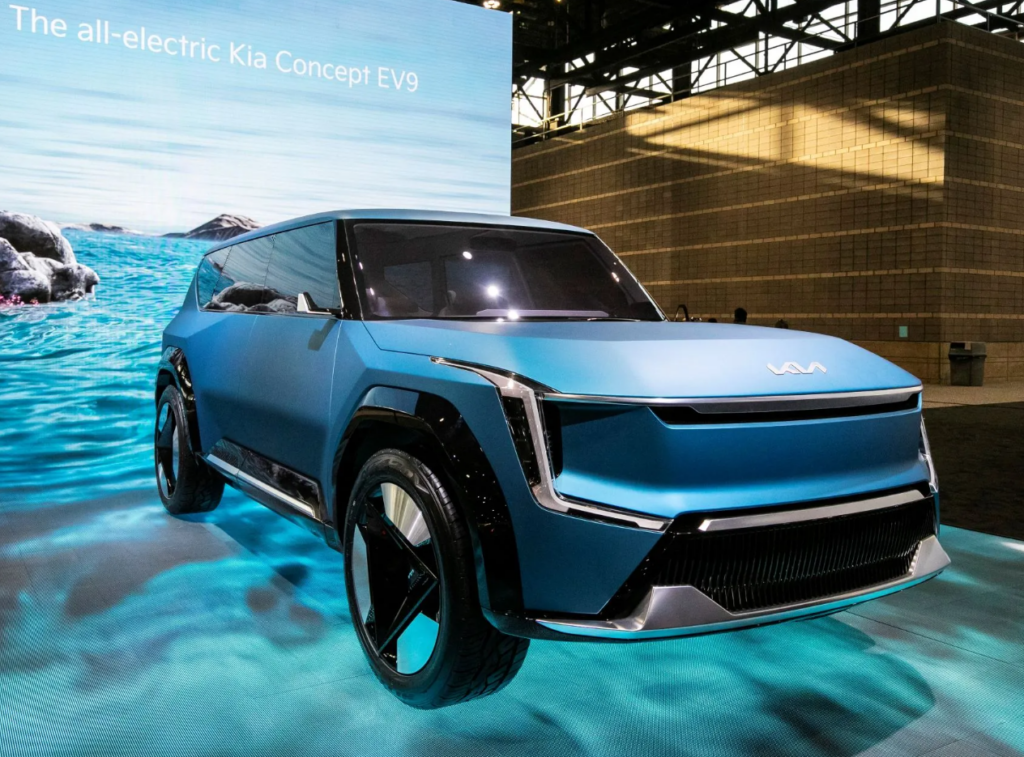
Revealed at the 2021 Los Angeles Auto Show as a concept, the EV9 builds upon the success of Kia’s electric flagship, the hot-selling EV6 electric crossover. Precisely how much of the EV9 concept will make it into the production-ready EV9 remains unknown, so we’ll proceed with a healthy dose of skepticism.
The Kia EV9 concept EV9 features a third row of seating, something that only three mainstream electric cars offer for the 2023 model year. That would be the Tesla Model X ($120,990+), the brand-new Rivian R1S ($78,000+) and the Vinfast VF-9, which is not yet in production, but will start at $57,500 or $76,000 with the battery. Yes, you read that right. The VF9 will require an additional $18,000 to buy the battery, or you can pay a monthly battery fee instead. More on that here. Let’s see how the Korean offerings will compare.
We expect the EV9 to launch with a starting price in the low to mid-$50,000 range. Why not cheaper? Raw material costs are increasing, making every EV more expensive to produce. Need proof? Check out lithium prices on commodity markets.
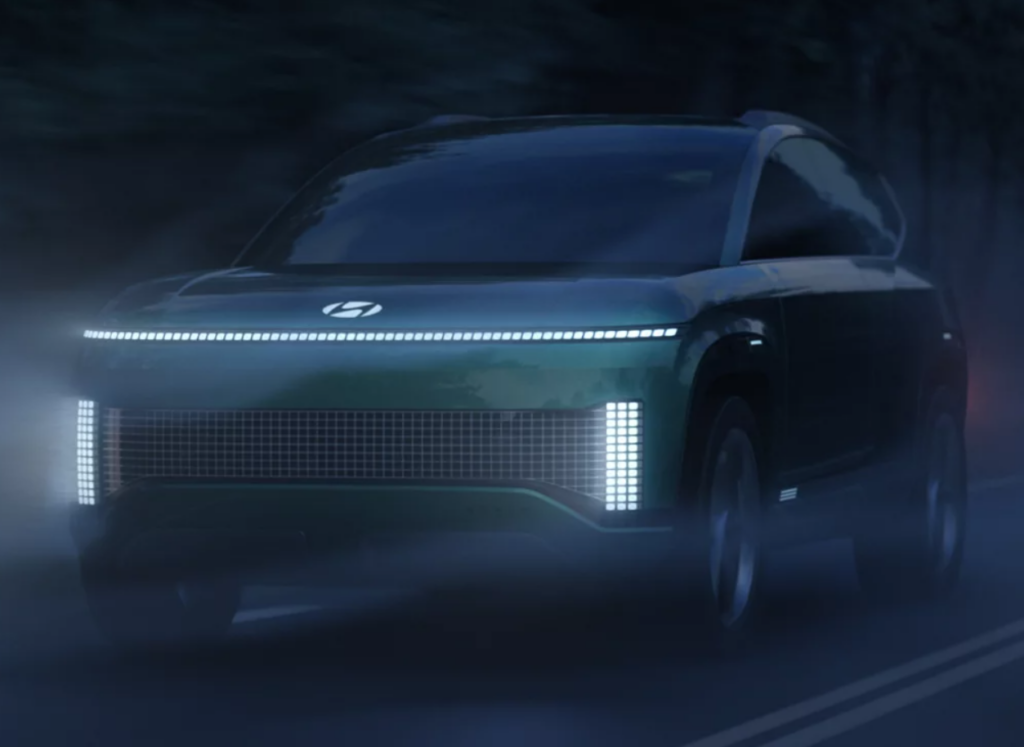
Automakers are looking for ways to sell higher-margin electric vehicles to fund their transition to EVs. One way they do that is to subsidize their headline-grabbing base model with affordable pricing with better equipped and much pricier mid and upper trim configurations. We expect this to be the only way that GM can offer a sub-$40,000 Chevy Equinox EV (more on the Equinox EV here). Kia and Hyundai are very likely to do the same. Expect the EV9 and IONIQ 7’s pricing to stretch from the low $50,000s all the way towards $70,000. Of course, the automakers are betting that you’ll want to upgrade to the more expensive options.
We track EV price updates. Here’s the latest.
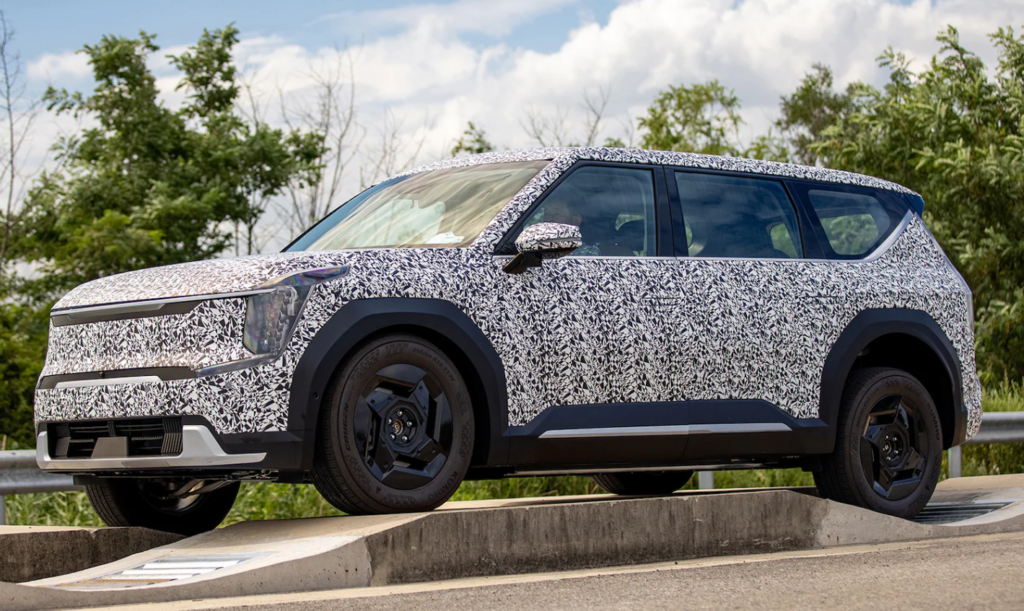
Multiple EV9s have been spotted doing road testing, and all signs point towards a production-ready unveiling in early to mid 2023. Although we haven’t seen any IONIQ 7s testing as of late 2022, we still expect the two to debut together, much like the Hyundai IONIQ 5 and Kia EV6 did in late 2021.
Finance with CarEdge! We work with trusted credit unions offering low rates and great customer service. Learn more and get pre-approved!
The Hyundai IONIQ 7 and Kia EV9 will launch in late 2023 as 2024 models. Of course, that’s unless the worsening semiconductor chip shortage and broader supply chain constraints delay the release date of the model. By then, the Vinfast VF9 will have arrived too. Although Vinfast doesn’t have the brand-recognition and dealer network of Hyundai and Kia, early media reviews are largely positive. You can learn more about Vinfast’s unique battery subscription model here.
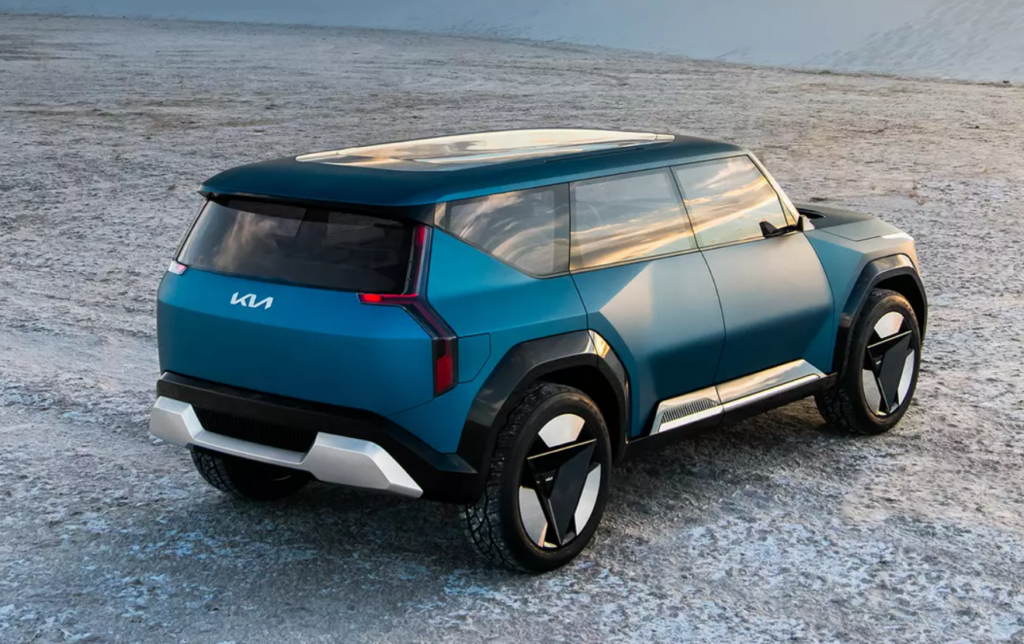
The Kia EV9 concept that was unveiled in 2021 was a bit over-the-top. It featured a solar panel on the front hood, a 27-inch infotainment and gauge display, and a pop-up steering wheel that is unlikely to survive the transition to production. The IONIQ 7 debuted as a literal living room on wheels. Fantasies aside, what will make it into production? Expected range, charging and pricing are enough to get us excited.
Kia and Hyundai claim that these two electric SUVs will get 300 miles of range on a charge. Before you demand more miles, remember that SUVs (and trucks) are by design inefficient. That means more batteries are needed to squeeze the same range when compared to a smaller crossover or sedan. Don’t expect 400 mile+ 3-row electric SUVs to become commonplace, let alone affordable, this decade.
The EV9 and IONIQ 7 will share the Electric Global Modular Platform (e-GMP) that Hyundai Motor Group engineered. There’s great info on this powertrain here. My own 2022 Hyundai IONIQ 5 has this same powertrain, and I love it. Range estimates are accurate, I’ve had minimal range loss after 15,000 miles, and charging is amazingly quick.
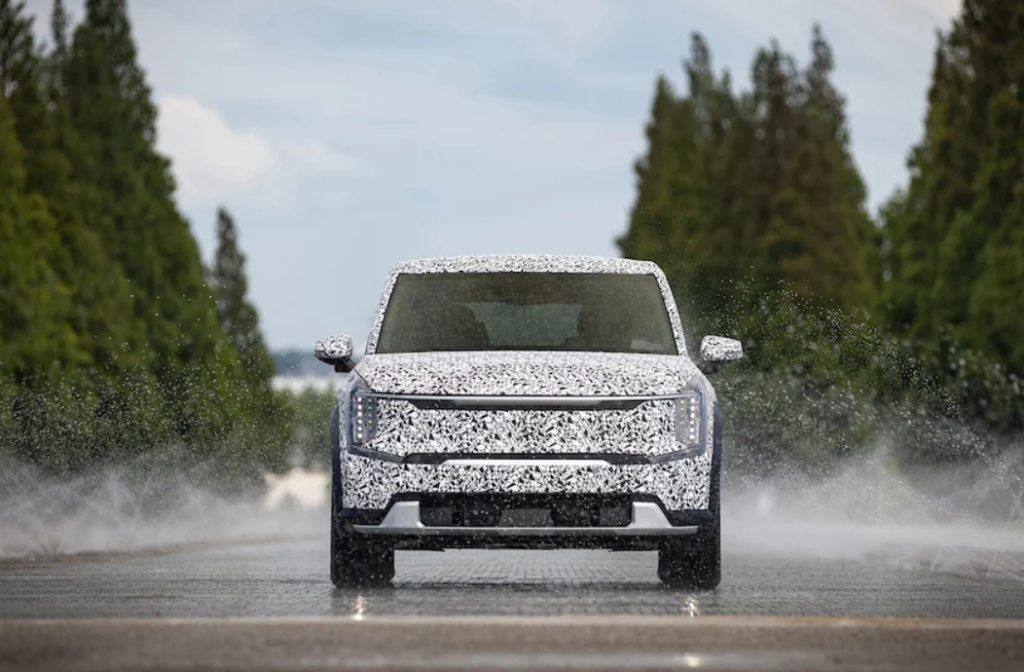
Kia says that the EV9 will be able to charge on 350-kilowatt DC fast charging stations, such as those found at Electrify America. We already know a lot about the e-GMP powertrain’s charging capabilities. With 350 kW charging, the EV9 will be able to add 200 miles of range in under 30 minutes. In all likelihood, the IONIQ 7 will match these specs.
Currently, Hyundai sources batteries from SK Innovation. In late 2021, SK Innovation announced plans for two battery plants at a single site in Commerce, Georgia. That’s just down the road from where their largest customer, Hyundai Motor Group, is building a massive EV production facility. We expect SK Innovation to supply American-made batteries for the IONIQ 7 and EV9.
That leads us to our final topic: EV tax credits in the US.
Will the Kia EV9 and Hyundai IONIQ 7 Qualify for EV Tax Credits? Yes, but it’s possible that the two models won’t be eligible until late 2024 or 2025. Why? Both Kia and Hyundai have publicly shared their intentions of speeding up construction at their new EV production facilities in Georgia. Even with the quicker timeline, executives say that they hope to begin volume production in the third quarter of 2024.
In order for any electric vehicle to qualify for the revised EV tax credit, the vehicle and buyer must meet several criteria. The most notable are the following:
See FULL DETAILS on the new EV tax credit.
Truthfully, Hyundai and Kia have not yet released much information about their two new 3-row electric vehicles. When the two OEMS unveil the production versions of the EV9 and IONIQ 7 in early 2023, we’ll update this page with interior images, additional specs, and all that we learn.
In the meantime, check out the fastest-growing EV forum on the internet. It’s free, and full of thousands of drivers at all levels of EV interest.
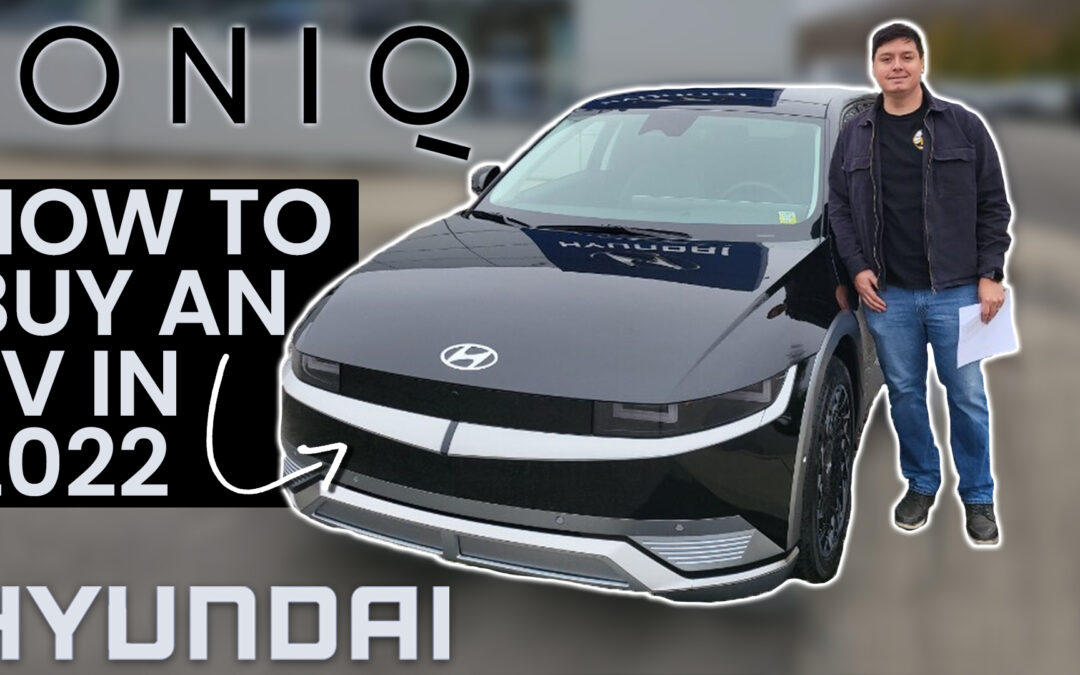
Buying an EV today is no walk in the park, but a good deal can be had with patience, research and flexibility. And having just gone through this process myself, I can confirm it was totally worth the work. These are my secrets to success, and how you can adapt these buying strategies to your unique situation in 2023.
Plus, be sure to check out the free template below to help you find the best deal on an EV in today’s competitive market.
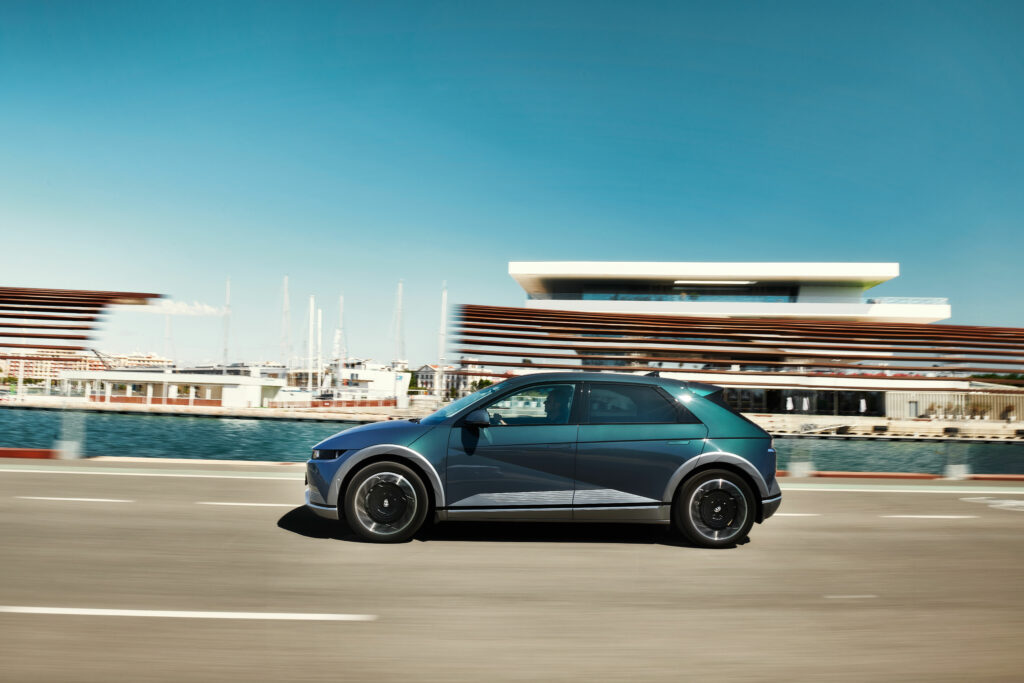
In 2023, it will save you a lot of strife to figure this out from the get-go. Which electric car models are you serious about? Are you solely considering Tesla with their direct-to-consumer, non-negotiable prices, or are you heading out to dealerships to find the best deal? Have you test driven your favorite EVs or even rented them on a service like Turo?
Once you have your short list of electric cars, trucks or SUVs that made the cut, it’s time to talk trim options, powertrains, and colors.
Do you prefer better range, or traction and acceleration? For some, all-wheel drive versus rear-wheel drive is front of mind. My driveway in snowy West Virginia is as steep as it gets, so I knew that AWD was a must for me. There’s always a tradeoff though. RWD electric cars get better range, sometimes 20% more. However, they’re not as fast for the speed freaks out there. Do you care more about going the extra mile on the highway, or zipping around town with the best 0-60 time?
And then there’s charging time. Before you settle on an EV model, have a plan for how you’ll charge it. If you live near a major metro area or along a major interstate, don’t fret. Fast chargers are already available near you. However, charging at home is MUCH more affordable.
Would you be okay with adding a few miles of driving range per hour (30 miles overnight) by simply plugging in to a normal 110 Volt wall outlet? Or would you rather spend $1000 on the installation of a faster charger for your home? The answer to that question may depend on what the rated range and charging speeds of your car are.
It’s often easier to find a base trim at MSRP. I just experienced the hassle of finding a fully-loaded IONIQ 5 Limited in America. There aren’t many out there. Depending on the EV you’re in the market for, finding the trim you want may or may not be a challenge. For Tesla, it’s a non-issue. I’ve found that the only way to avoid regretting your trim selection is to experience each trim firsthand.
Remember: The average price for an EV remains 20% higher than the overall market in 2023. Buying an EV under MSRP is possible, as proven by our own CarEdge Car Coaches. However, if a higher trim makes it more likely that you’ll keep the vehicle long-term, it might be worth it to shell out a few thousand more dollars to get the upgrade. I’m glad I did.
The real value (and fuel/maintenance savings) of an EV will only be had if you keep it long-term (or if it ends up keeping good residual value down the road).
How long are you willing to wait? How far are you willing to go over MSRP? What will you do if the dealer tries to force add-ons? Would you be patient to save thousands of dollars? These are all questions you should be asking yourself early on.
As ridiculous as it is, I took a one-way flight 600 miles to New York to pick up my lovely new car at MSRP. Sure, I could have bought a base trim with a $3000 markup a few hours away, but my plane ticket was only $250. What are you willing to do for the perfect car at the perfect price (by 2022 standards)? How far would you go? Would you rather travel to pick up the electric car, or pay $1,000 – $2,000 for delivery?
How much are you willing to pay? Strictly the manufacturer-suggested retail price (MSRP), or a tad more? What will be your plan of action if the perfect car is local for $2,000 or $3,000 over, but the same car is at MSRP five hours away? Remember, EVs ARE negotiable in 2023.
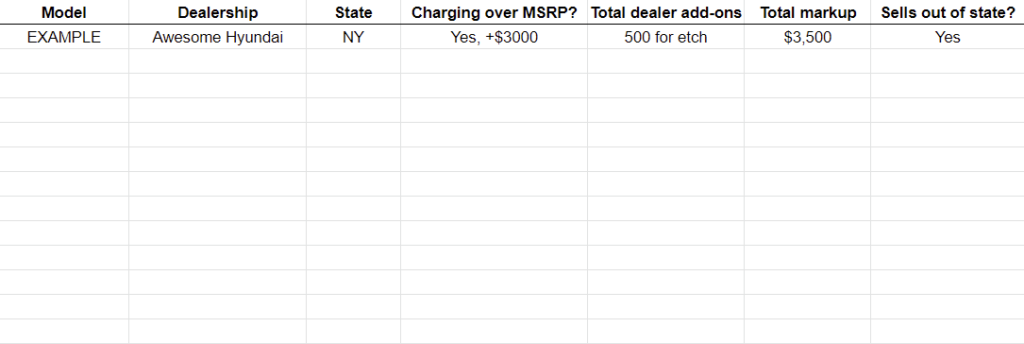
I’m a spreadsheet guy. Google Sheets and Microsoft Excel are my best friends. Perhaps you prefer lists on a notepad or on your phone. Whatever the case, get organized. If you don’t, you may end up calling the same dealership twice, or even worse, losing track of where the best deals are.
Here are some important things to keep track of:
Here’s an example template that you can copy and make your own.
I can not emphasize the importance of staying organized throughout your car search, especially if you don’t want to spend more time than absolutely necessary on this.
Now it’s time to contact dealers and fill up that spreadsheet. Fingers crossed! Do you prefer phone calls, or messaging the internet sales team? I was impatient, so I called each dealer, and if it sounded like they might be one to work with, I then began the email process. It’s VERY wise to document all communications (especially about pricing) in emails or at least text messages.
Don’t make it any harder than it has to be. Start with a search radius you’re comfortable with, and work outward from there. In fact, start with CarEdge Car Search to find the inventory leads, and don’t forget to check out CarEdge Car Dealer Reviews, where dozens of electric car buyers have already shared their dealership experiences. Don’t forget to add yours!
When you find what you want (hopefully with no dealer markup and no or negotiable add-ons, find out if you can place a deposit. Some dealerships don’t accept deposits, which means you’d have to show up on the day the car arrives. Even then, nothing is a guarantee. Do a risk/reward analysis.
Does the price and spec of the car justify what it would take to get the car?
When you find the deal you’d like to move forward with, get EVERYTHING in writing.
Specifically, these bits of info should be documented at the very least:
Make sure you’re aware of the possible arrival date if awaiting a shipment. Be flexible. My delivery date was actually moved up, but others have had to wait a few extra weeks.

Even in today’s hectic, supply-constrained auto market, I’m confident that electric car buyers can find a great deal by following this game plan. Clearly, documenting everything is my thesis. Let us know if you have any questions, thoughts or suggestions. We’d especially love to know how your electric car buying experience turns out!
Be sure to leave a dealer review to help others find pro-consumer dealerships!
Plus, check out our new CarEdge Electric live show every Monday, Wednesday and Friday. We’re excited for what’s to come, and we’re thrilled to have you along for the ride.
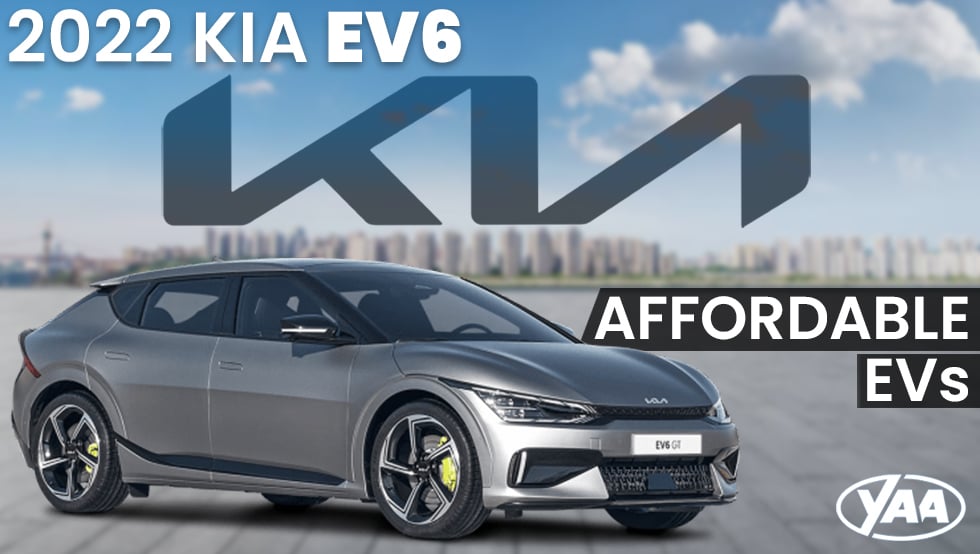
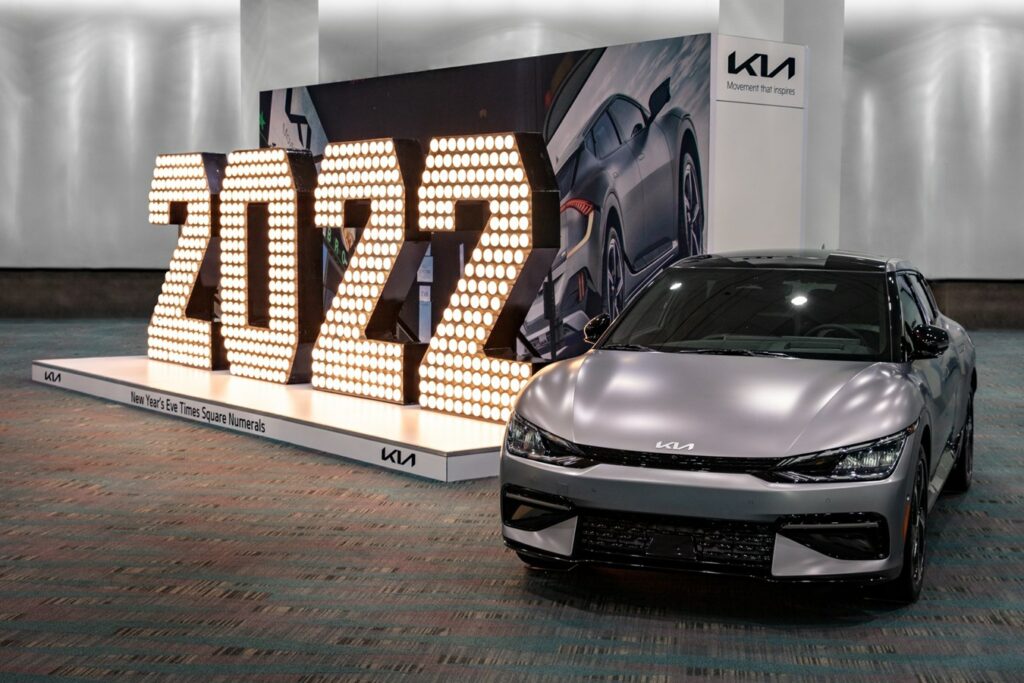
The average new vehicle sells for nearly $50,000, but not every vehicle costs the same to maintain and operate. Fuel economy, reliability, insurance, and maintenance needs are just some of the factors that determine the total cost of ownership for any vehicle. Automakers have made it clear that they’re bringing EVs to the masses, however cheap electric cars remain elusive.
Consumers in the market for an affordable vehicle in 2022 are presented with diverse options, including a larger selection of electric vehicles than ever before. EV‘s are no longer just for tech nerds. People who had never imagined themselves in an electric vehicle are making the switch simply for fuel savings.
However, it remains true that the majority of electric vehicles carry luxury price tags. It’s unlikely you’ll hear anyone say there are “cheap electric cars,” however there are affordable EVs. Here are five affordable electric vehicles that drivers love in 2022.
Starting at $40,760
240 – 260 miles of range
Learn more: CarEdge Review of the Volkswagen ID.4
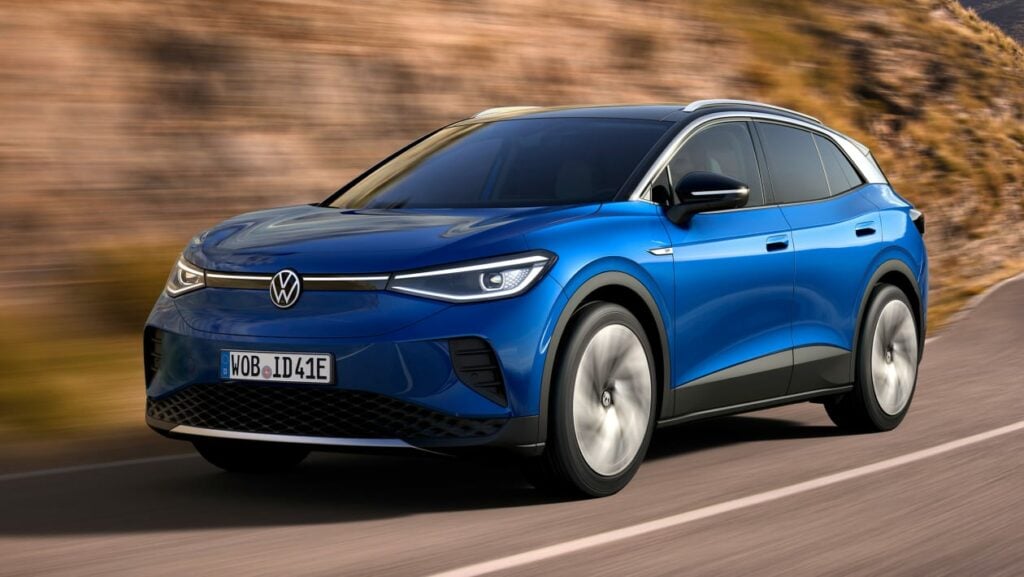
Pro:
Cons:
If you’re in the market for a great electric vehicle that will get you from A to B in comfort and confidence, the 2022 Volkswagen ID.4 should be on your short list. Capable performance, great safety ratings and a spacious cabin make the ID.4 a great place to be for the price point.
The 2022 ID.4 can go the distance, leaving range anxiety behind for the most part. Dozens of real-world range tests show that even on the highway at 70 mph, the ID.4 gets well over 200 miles on a charge. In city driving, closer to 300 miles is likely.
2022 updates are bringing bidirectional charging, plug-and-charge, increased range, quicker charging and major over-the-air updates to the ID.4. Even 2021 models will get new features via OTA updates this summer. Learn more about the game-changing capabilities of OTA updates here.
When it comes time to charge, you can either juice up at home overnight, or take advantage of 3 years of free Electrify America charging with unlimited miles. For frequent travelers, the Electrify America incentive can be worth a few thousand dollars. At a fast charger, charging to 80% takes about 30 minutes.
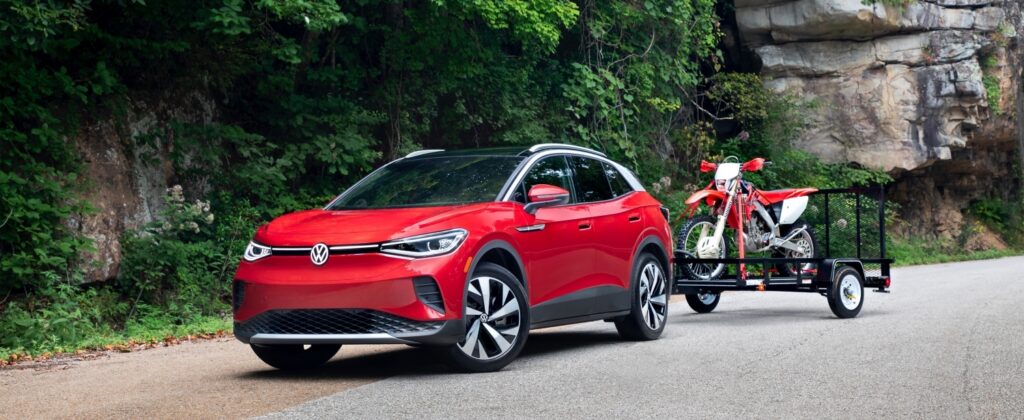
The all-wheel drive version of the ID.4 is where this crossover really shines. Adding another motor to the front axle increases horsepower to 295 with 339 lb-ft of torque and a very satisfying 0-60 time of just 5.4 seconds. However, it’s not quite a car you’d take to the track. The handling is well-tuned for attacking winding roads in inclement weather, although it maintains a more family-oriented demeanor.
The 2021 ID.4 earned a Top Safety Pick+ rating from the Insurance Institute for Highway Safety, and a five-star rating from the National Highway Traffic Safety Administration’s rigorous crash testing. CarEdge recently detailed all electric vehicle safety ratings in 2022.
The Volkswagen ID.4 is about as good as it gets for its use case. For the frugal-minded, It’s a particularly compelling car in the base Pro trim with rear-wheel drive (MSRP $40,760). Volkswagen’s EVs still qualify for the $7,500 federal EV tax credit in the US, which can turn the entry-level ID.4 into a $34,000 purchase. That’s an amazing value in today’s market.
Starting at $40,900
232 – 310 miles of range
Learn more: CarEdge Review of the Kia EV6

Pro:
Cons:
If you’re a techie who demands the latest and greatest that automakers have to offer, but don’t have the budget to buy an extravagant Lucid Air or Mercedes EQS, the Kia EV6 and its platform sibling the Hyundai IONIQ 5 just might be what you’re looking for.
Kia and Hyundai partnered up to engineer the new E-GMP battery and powertrain platform. The first two models to feature this advanced architecture are the Hyundai IONIQ 5 and the all-new Kia EV6. Both of these crossovers offer ultra-fast charging, impressive range, and over-the-air update capability for just over $40,000.
The 2022 Kia EV6 has a premium feel to it, and that’s something we’re still learning to expect from Kia. Aggressive looks on the outside are met with a welcoming, spacious interior. The cabin is open and airy.
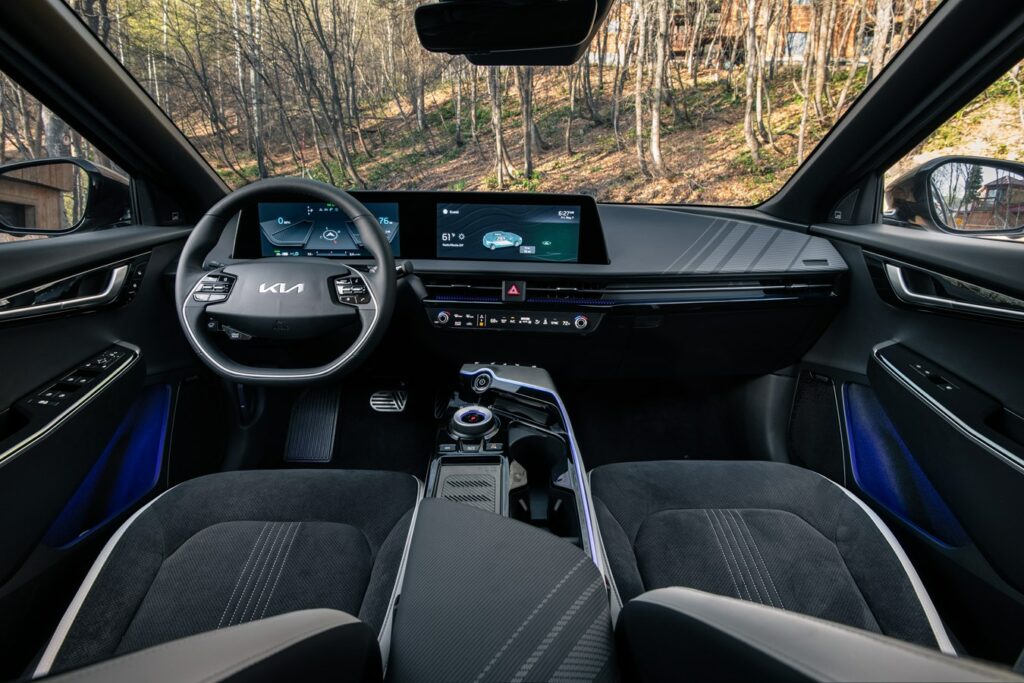
The EV6’s front dash consists of dual 12.3” screens, one for infotainment and another for the instrument cluster. Higher trims also include an augmented reality heads-up display that projects driving directions and basic info onto the windshield within the driver’s line of sight.
The Kia EV6 is no slouch; it can hustle with a heavy foot. All-wheel drive variants produce 313 hp and a 0-60 time of 5.1 seconds, but range drops to 274 miles on a charge. Longer range rear-wheel drive trims still reach 60 mph in just 7.3 seconds. For perspective, that’s about two seconds quicker than the popular Subaru Forester.
With a starting MSRP around $42,000 with destination, the 2022 EV6 represents incredible value for leading-edge tech. It even has faster charging and longer range than similarly priced Tesla models.
The greatest advantage the Kia EV6 has over any Tesla model is that the EV6 qualifies for the federal electric vehicle tax credit. Buyers can save up to $7,500 on their federal taxes if they purchase a Kia EV. Tesla and GM brands are no longer eligible since they’ve already sold greater than 200,000 electric cars.
If you’re a fan of the specs but not the aggressive looks, the Hyundai IONIQ 5 may be the perfect compromise.
Starting at $40,925
220 – 303 miles of range
Learn more: CarEdge Review of the Hyundai IONIQ 5
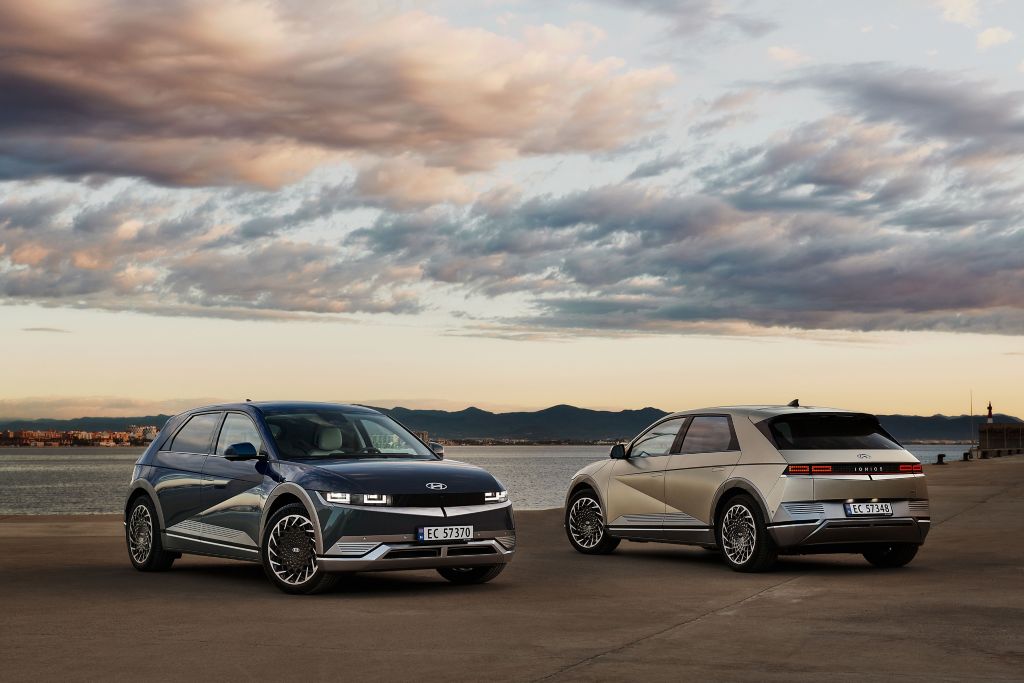
The IONIQ 5 made our CarEdge list of the 5 best cars to buy in 2022!
Pro:
Cons:
The all-new 2022 Hyundai IONIQ 5 is a uniquely retro electric crossover. You’re sure to get plenty of thumbs-ups at stoplights in this head-turner. It’s under $50,000, and surprisingly available at dealerships today. Hyundai says that the pixelated design draws inspiration from the first car they brought to America, the Hyundai Pony.
Also built on the new E-GMP platform, the Kia EV6’s sibling is as comfortable slamming into curves as it is cruising the interstate. The all-wheel drive variant is adequately powered with 320 horsepower and 446 lb-ft of torque. The AWD IONIQ 5 can get up and go with a 0-60 time of 5.2 seconds. That’s just a hair above the current electric crossover sales champion, the Tesla Model Y.
Range varies from 220 miles up to 303 miles depending on battery size and drivetrain. That’s slightly above average for a 2022 model. It’s important to note that some real-world highway range tests have struggled to get the IONIQ 5 past 200 miles on a charge.
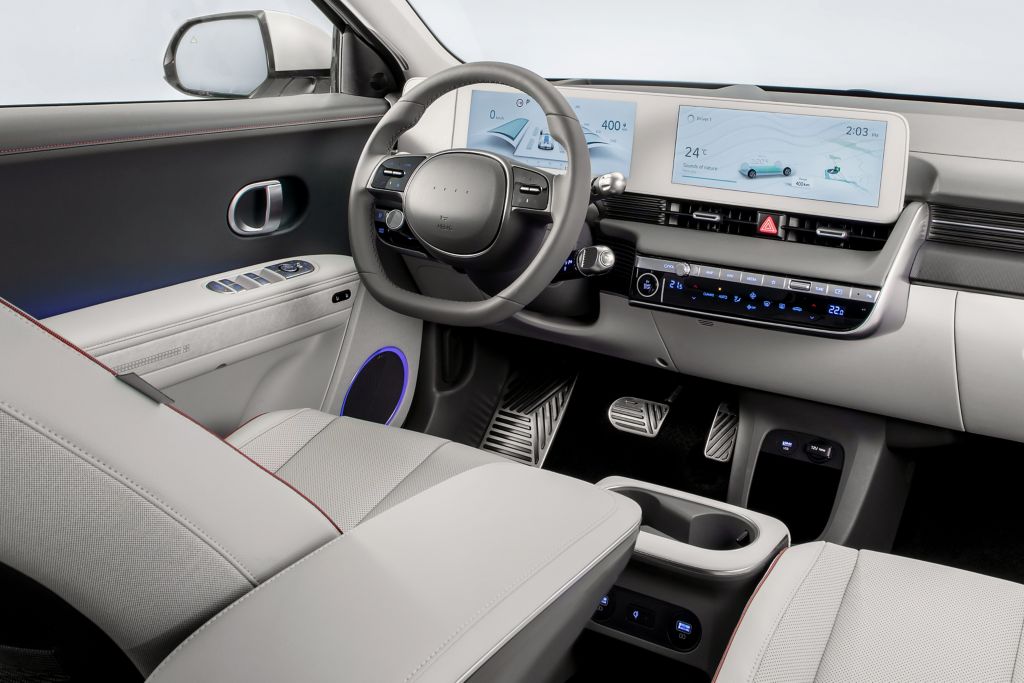
The IONIQ 5 does have one massive advantage over its competitors: charging speed. When you plug in at any Electrify America charging station, the IONIQ 5 can handle up to 230 kW charging speeds. Charging from 10% to 80% (adding 212 miles of range) takes just 18 minutes. The only other vehicle on the market capable of charging that fast is the $75,000+ Lucid Air luxury sedan. The IONIQ 5 has a major charging advantage over the ID.4 and Mustang Mach-E.
The IONIQ 5 is part crossover, part oversized hatchback. That’s not a bad thing. Somehow, Hyundai pulls off this delicate balance in all the right ways. The Ioniq 5’s interior volume (passenger and cargo combined) is 133.7 cubic feet, which is larger than the VW ID.4 and Ford Mustang Mach-E. The roominess has more in common with a Hyundai Santa Fe than a Kona.
Starting at just $40,925 for the 58 kWh smaller battery base model, the IONIQ 5 is available for thousands less than was expected. Most buyers will opt for the larger battery pack (77.4 kWh), which is comparable to other class competitors. With standard rear-wheel drive, the IONIQ 5 SE with the long range battery starts at $44,875. All-wheel drive is available for $3,500-3,900 more. The Limited trim starts at $51,825 and maxes out over $56,000 with all options included.
Starting at $44,990
272 miles of range
Learn more: CarEdge Review of the Tesla Model 3
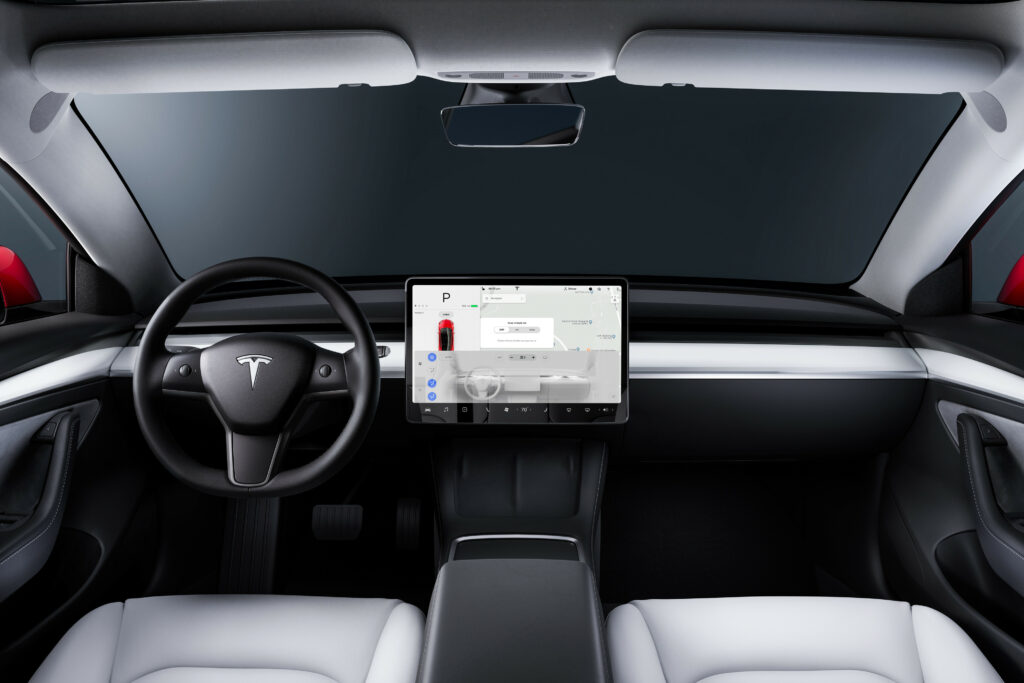
Pro:
Cons:
Say hello to the only Tesla available for less than $50,000. In reality, the 2022 Rear-Wheel Drive Model 3 is the same car as the ‘Standard Range Plus’ variant that the American automaker sold until 2021. Perhaps calling something ‘standard’ just wasn’t on-brand for the luxury automaker.
Don’t get your hopes up if you’re thinking you can get access to Tesla’s Full Self-Driving for under 50 grand. Tesla now charges $12,000 for FSD, which would bring the 2022 Rear-Wheel Drive Model 3 closer to $60,000 after taxes and fees.
Find out everything you need to know about self-driving cars in our CarEdge guide to autonomous vehicles.
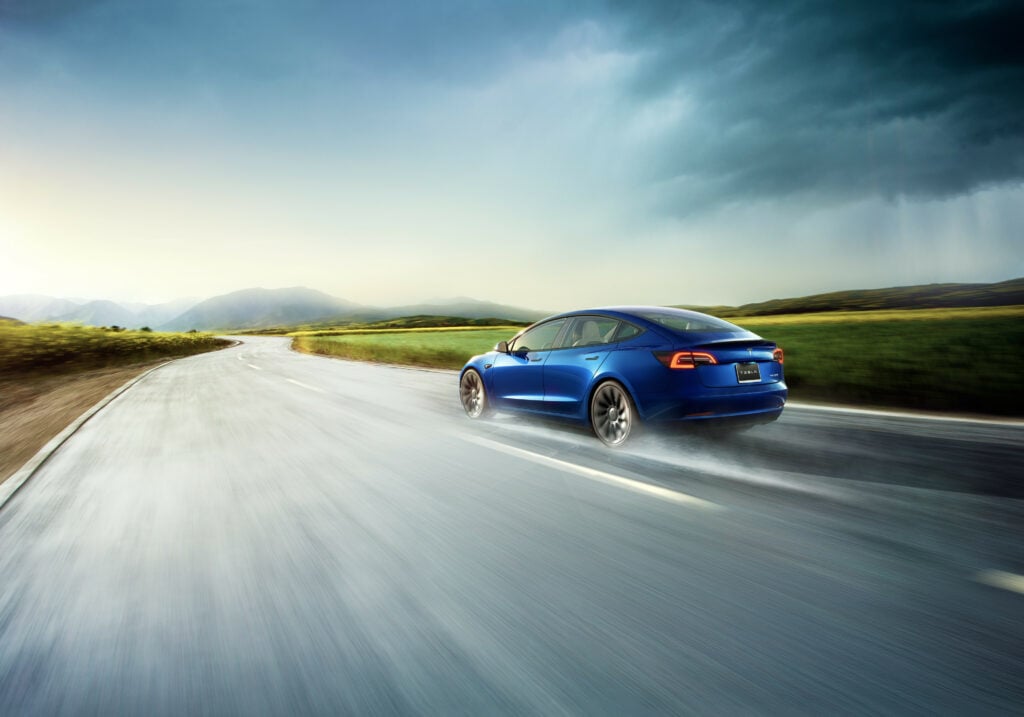
This base trim has received some 2022 upgrades, most notably an increase in range from 262 miles to 272 miles on a charge with the included 18” aero wheels. The 2022 Rear-Wheel Drive Model 3 features new lithium iron phosphate (LFP) batteries which will allow the car to repeatedly charge to 100% without risking as much harm to the life of the battery.
The Rear-Wheel Drive Model 3 is powered by a single electric motor that produces 296 hp and 277 pound-feet of torque. This sedan powers to 60 mph in just 5.8 seconds, not bad for a base trim.
At a Tesla Supercharger, its 60 kWh battery pack can accept up to 170 kW when nearly empty. In the real world, that means charging from 10-80% (adding 190 miles of range) takes about 26 minutes.
The 2022 Tesla Model 3 Rear-Wheel Drive now sells for a notoriously non-negotiable $44,990, plus the $1,200 destination and doc fee. So the cheapest Tesla is now $46,190. Just a year ago, it was $38,190.
Starting at $34,000
258 miles of range
Search hundreds of Hyundai Kona EVs for sale today at CarEdge Car Search!
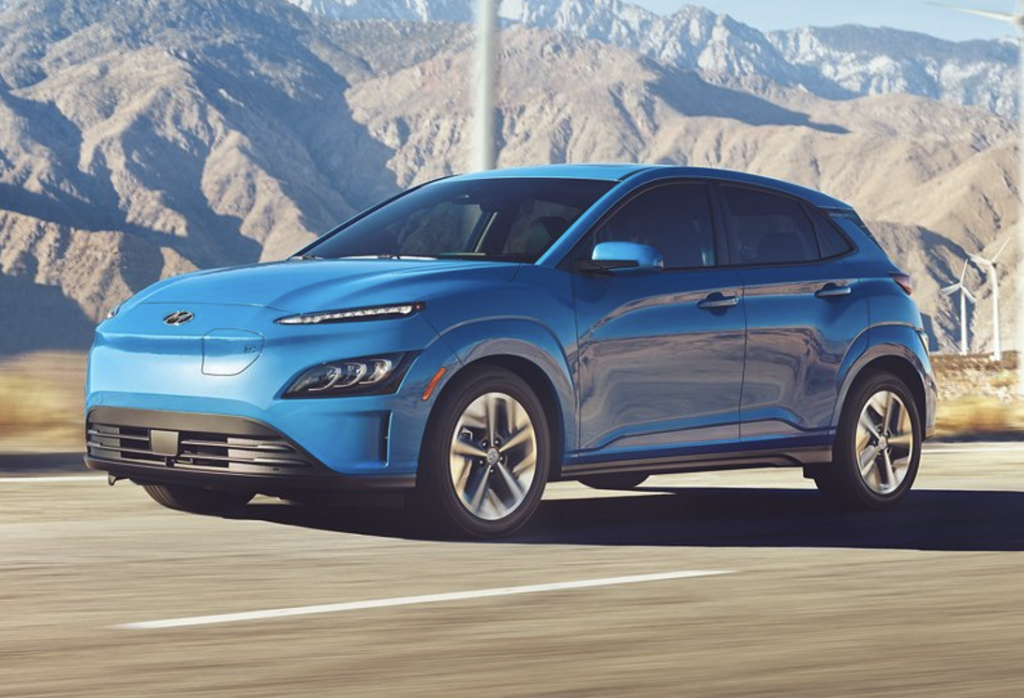
Pro:
Cons:
Hyundai’s forgotten electric vehicle should not be overlooked by those in search of a very affordable entry into electric mobility. The 2022 Hyundai Kona EV may not look all that attractive, but it has decent range and room to fit most lifestyles.
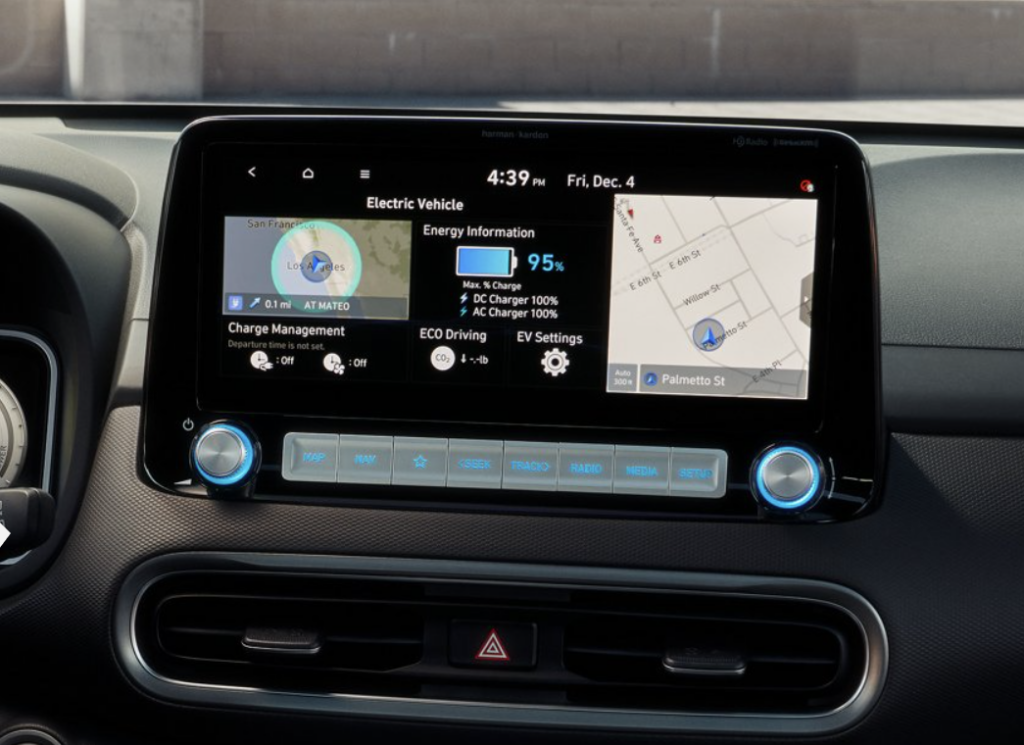
For just $34,000 before incentives, you can become the owner of the original Hyundai EV. This front-wheel drive subcompact crossover gets 258 miles on the charge, exceptional range for a budget EV. Some owners get over 275 miles on a single charge. The Limited trim, top-of-the-line option comes in at $42,500.
If you plug in at home, charging to 100% from a 240-volt dryer outlet will only take you about 9 hours from 10% state of charge. That will get you a full battery overnight while you’re sleeping. At a DC fast charger, the Kona is behind the competition. In 47 minutes, the Kona Electric charges from 10% to 80% capacity.
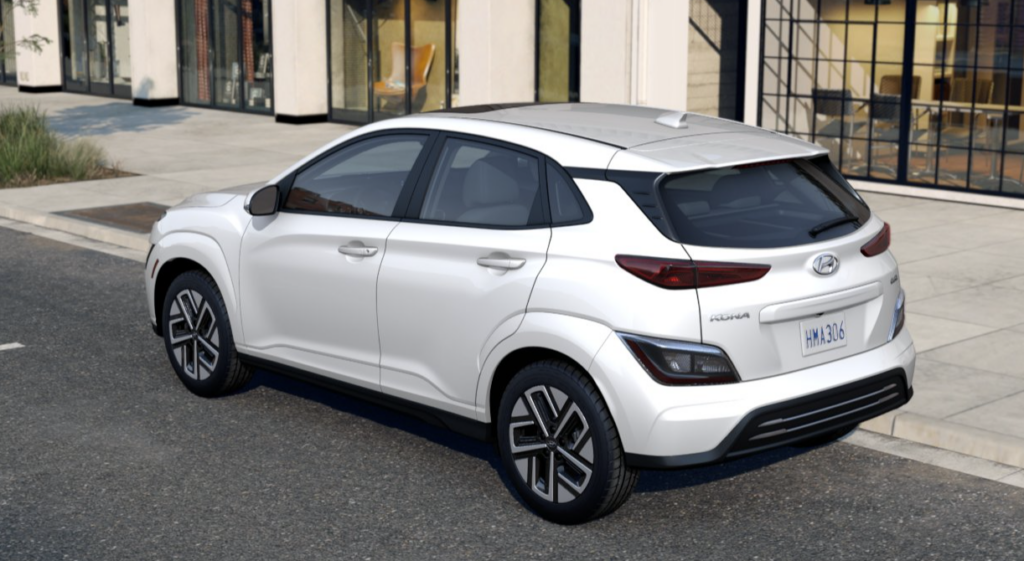
If you’re more of a Kia lover, we have great news. The Kia e-Niro is basically the Kona Electric with a Kia face.
Due to the Kona Electric’s charging faults, this would not be a great road-tripping vehicle. But if you’re looking for cheap electric cars perfect for zipping around town, this is a great deal not to be overlooked.
Available in 2023, but you can reserve one now.
Learn More: CarEdge review of the Fisker Ocean
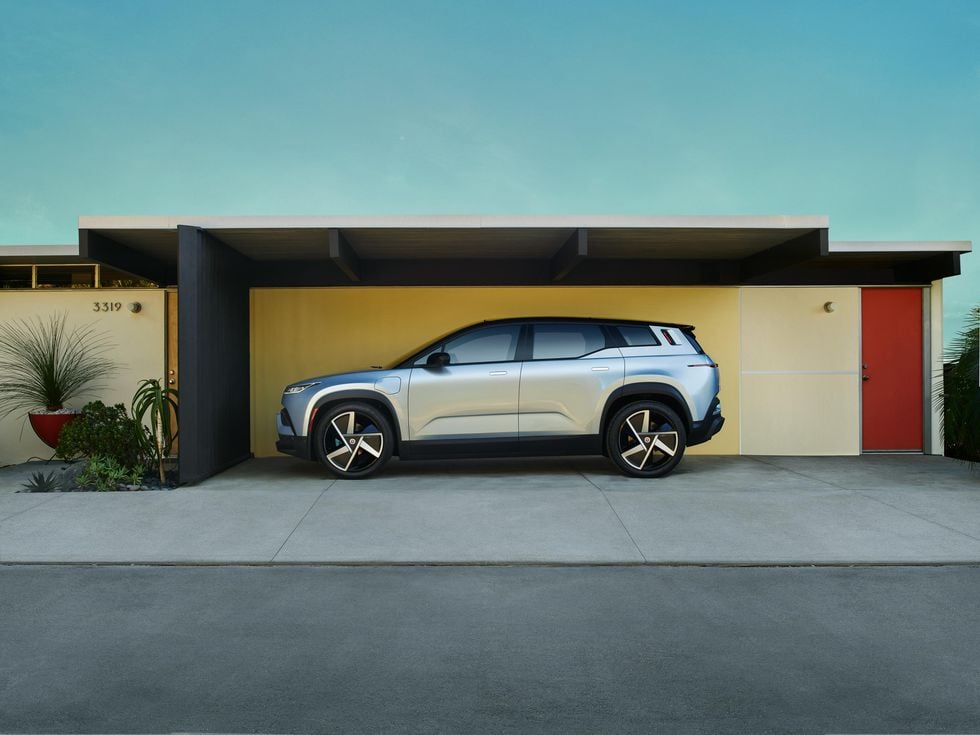
The Fisker Ocean sure does promise a lot. Will it deliver? At just $37,000, Fisker’s all-electric brand quotes 250 miles of range for the entry-level Fisker Ocean crossover. The 2023 Fisker Ocean didn’t make our official list for a few reasons. It hasn’t been produced yet, and delays have pushed the start of production back to November 2022. Fisker says they have 32,000 reservations in the books, so if you’re looking to buy one, it may not be possible until mid-2023. Furthermore, the more capable and sporty Fisker Ocean trims start at $50,000.
You may be wondering where the Chevrolet Bolt and Nissan Leaf are on this list of cheap electric cars. The Leaf is one of the originators of the EV segment, having started it all back in 2011. However, Nissan has regrettably not invested in range or battery performance upgrades over the years. It’s failing to keep up with the growing competition.
The 2022 Nissan Leaf S gets just 149 miles of range and charges quite slowly at between 50 and 100 kilowatts at a fast charger. It is the MOST affordable electric vehicle, with prices ranging from $27,400 to $37,400, however we can’t recommend an EV that leaves the lot at a disadvantage. As electric vehicles come to market with 250 to 400 mile ranges, how will the Leaf retain any resale value?
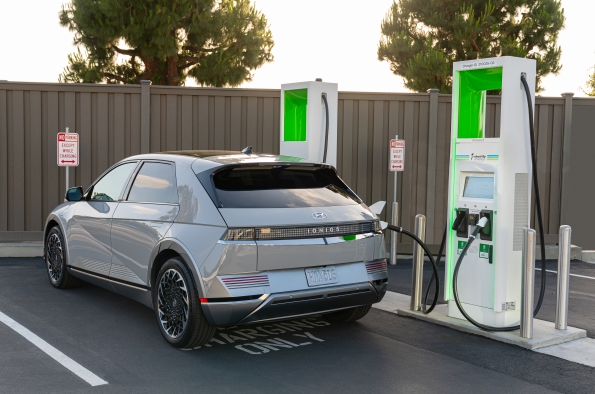
And then there’s the Chevrolet Bolt. It’s affordable and even looks okay with the recent facelift. While it’s true that the recall fix is giving Bolts brand-new, modernized battery packs, the reliability of the Bolt has taken such a hit that it’s too great of a financial risk for today’s consumers to get behind the wheel worry-free. You don’t want your $31,000 purchase to be a symbol of unprecedented fire risk. What would it take to change my mind? At this point, a few years of problem-free driving. Until then stay away from the Chevrolet Bolt. As you can see, there are plenty of other affordable electric vehicles out there in 2022.
Follow the money. Automakers are going all-in on electric vehicles in 2022 and beyond. The consumer benefits as competition rises, so perhaps affordable EVs are here to stay. If you’re looking to go electric in 2022, you don’t have to buy a Tesla, Nissan Leaf or Chevy Bolt. Every automaker is racing to become the next big thing in the world of EVs.
Some parting advice: consider all options, and test drive as many electric vehicles as you can. You’ll be amazed at what’s out there, and even more amazed at what’s to come.